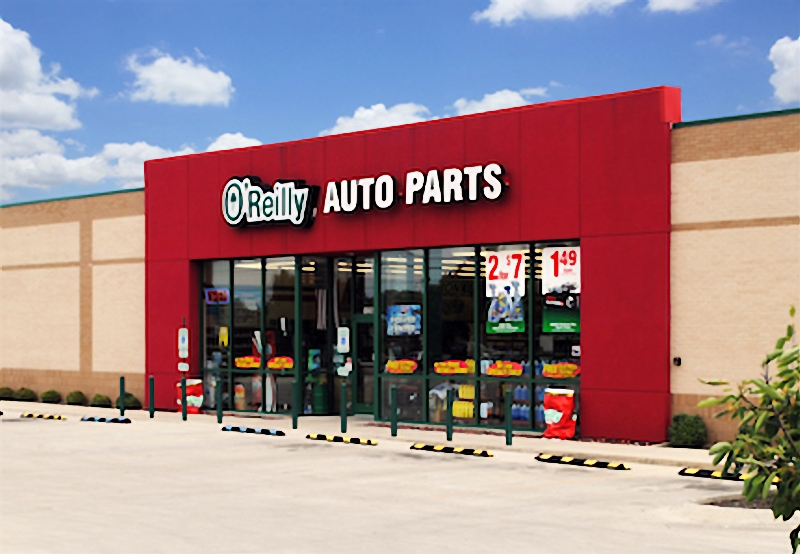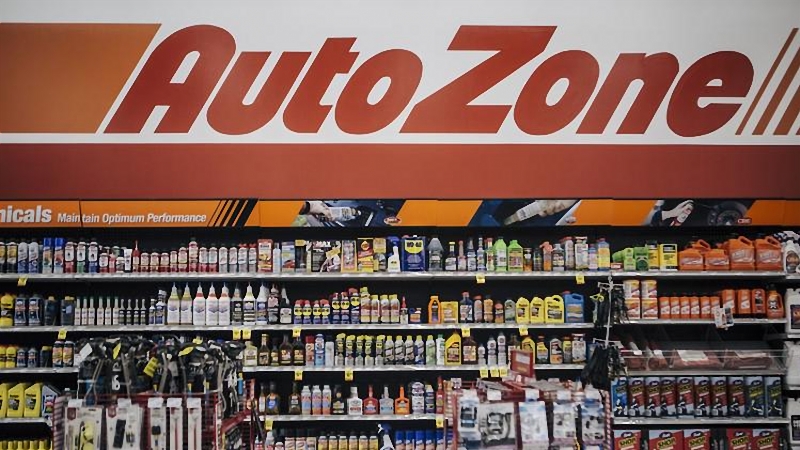NEWS
NEWS
US citizens will have to pay more for reparing their vehicles because of high customs duties
25-08-2018
Hopkins Manufacturing may change its China supplier network to factories in Taiwan. Multi Parts has stopped hiring new workers. The biggest automotive after-market products player AutoZone and OReilly Automotive plan to raise prices in USA.
Businesses in the automotive replacement parts industry — from component-makers to local mechanic shops — have to face President Donald Trumps tariffs on imported Chinese materials and goods. Sky-rocketing levies have already risen costs of some products made with steel and aluminum, and more duties could influence hundreds of other items these companies develop, make and sell, such as tires and rearview mirrors, windshields and windshield wipers.
Springfield, Mo.-based OReilly hasn suffered from "a big hurt" yet, but a couple of its suppliers have added a small part of the tariffs onto costs and a few more will do so early in the fourth quarter this year. So far OReilly have been able to pass that cost along to end customers. These include do-it-yourself vehicle owners and service technicians shopping at OReillys more than 5,000 stores.

Investors and analysts are asking how the tariffs will affect sales and profits. Dozens of businesses including Daimler, Hyundai and General Motors have said they already estimated higher prices driving up manufacturing costs or reducing profits.
AutoZone is analyzing products that could soon cause problems for the Memphis, Tenn.-based company, which has more than 5,500 stores and reported $10.9 billion in revenue last year. Prices of car components made with steel, such as rotors and other brake parts, will certainly have to rise soon.

While the tariff threat is wide, it actually may affect less than 15 percent of retailers stock. Auto parts stores source about 50 percent to 60 percent of their products from China, but only about 20 percent to 25 percent of these automotive after-market components are included in the latest round of tariffs. These duties cover a wide variety of imports with a total value of more than $200 billion ,which take effect until after a short period ends Sept. 6.
Some parts suppliers are much worrying. Brian Cohn, president of Jupiter, Fla.-based Multi Parts, said the companys current flow of orders has already slowed, and higher prices on materials have forced him to stop hiring new workers. Multi Parts facilities in Shanghai, Hong Kong and Belarus manufacture brake and wheel cylinders, wheel hubs, valve-timing solenoids and other components. The clients include parts distributors and other manufacturers of vehicle repair products.
Brad Kraft, chief executive officer at Hopkins Manufacturing, said his company imports many goods from China, and new tariffs already in place have driven up prices on about 350 items made with steel and aluminum. If the proposed tariffs on the additional $200 billion are enacted, prices will rise on at least 3,000 more of its products, which include tires, oil and fuel filters and components for towing systems.
Hopkins, based in Emporia, Kan., has two manufacturing facilities — in Juarez, Mexico, and Los Angeles — and an office in Ningbo, China, that arranges logistics with about 45 supplier factories in the country. Kraft says he is choosing suppliers in Taiwan instead. Sourcing products from Taiwan is actually more expensive, but it now looks like a cheaper choice if facing high importing duties.
Changing new supplier is time-consuming and expensive, however. Companies will need to make sure that tariffs will last long before they make such changes.
One risk of prolonged price rise is that car owners may postpone maintenance, reducing sales of car parts. This also could increase the number of unsafe vehicles on the road.
Businesses in the automotive replacement parts industry — from component-makers to local mechanic shops — have to face President Donald Trumps tariffs on imported Chinese materials and goods. Sky-rocketing levies have already risen costs of some products made with steel and aluminum, and more duties could influence hundreds of other items these companies develop, make and sell, such as tires and rearview mirrors, windshields and windshield wipers.
Springfield, Mo.-based OReilly hasn suffered from "a big hurt" yet, but a couple of its suppliers have added a small part of the tariffs onto costs and a few more will do so early in the fourth quarter this year. So far OReilly have been able to pass that cost along to end customers. These include do-it-yourself vehicle owners and service technicians shopping at OReillys more than 5,000 stores.

Investors and analysts are asking how the tariffs will affect sales and profits. Dozens of businesses including Daimler, Hyundai and General Motors have said they already estimated higher prices driving up manufacturing costs or reducing profits.
AutoZone is analyzing products that could soon cause problems for the Memphis, Tenn.-based company, which has more than 5,500 stores and reported $10.9 billion in revenue last year. Prices of car components made with steel, such as rotors and other brake parts, will certainly have to rise soon.

While the tariff threat is wide, it actually may affect less than 15 percent of retailers stock. Auto parts stores source about 50 percent to 60 percent of their products from China, but only about 20 percent to 25 percent of these automotive after-market components are included in the latest round of tariffs. These duties cover a wide variety of imports with a total value of more than $200 billion ,which take effect until after a short period ends Sept. 6.
Some parts suppliers are much worrying. Brian Cohn, president of Jupiter, Fla.-based Multi Parts, said the companys current flow of orders has already slowed, and higher prices on materials have forced him to stop hiring new workers. Multi Parts facilities in Shanghai, Hong Kong and Belarus manufacture brake and wheel cylinders, wheel hubs, valve-timing solenoids and other components. The clients include parts distributors and other manufacturers of vehicle repair products.
Brad Kraft, chief executive officer at Hopkins Manufacturing, said his company imports many goods from China, and new tariffs already in place have driven up prices on about 350 items made with steel and aluminum. If the proposed tariffs on the additional $200 billion are enacted, prices will rise on at least 3,000 more of its products, which include tires, oil and fuel filters and components for towing systems.
Hopkins, based in Emporia, Kan., has two manufacturing facilities — in Juarez, Mexico, and Los Angeles — and an office in Ningbo, China, that arranges logistics with about 45 supplier factories in the country. Kraft says he is choosing suppliers in Taiwan instead. Sourcing products from Taiwan is actually more expensive, but it now looks like a cheaper choice if facing high importing duties.
Changing new supplier is time-consuming and expensive, however. Companies will need to make sure that tariffs will last long before they make such changes.
One risk of prolonged price rise is that car owners may postpone maintenance, reducing sales of car parts. This also could increase the number of unsafe vehicles on the road.


